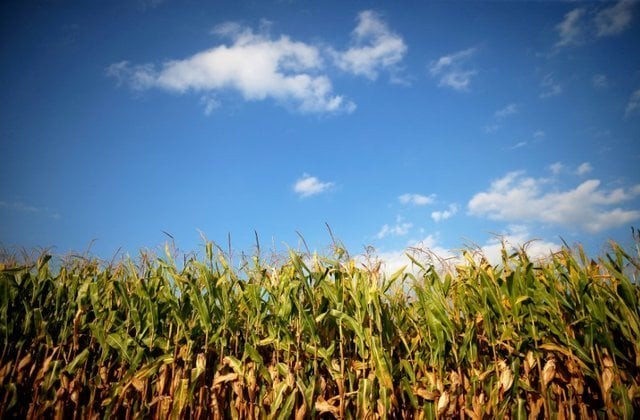Pakistan's agriculture sector on a long rough patch
Govt may consider giving targeted subsidy with focus on inputs

A Reuters file photo of an agricultural field.
The sector, which once contributed 53% to the country’s gross domestic product (GDP), has now seen its share dwindle to just around 18.5%.
According to the Economic Survey of Pakistan, the agriculture sector grew marginally by 0.85% in fiscal year 2018-19 against the target of 3.8% as all major crops posted average negative growth of 4.43% against the growth target of 3.6%.
On its part, the government claims it gives subsidy on farm inputs and sets minimum support price for some crops like wheat to ensure that the country remains self-sufficient in the staple wheat crop and stave off the threat to food security.
Nevertheless, the support price mechanism has been highly criticised by many stakeholders.
Though the government announces the minimum support price for wheat every year, in fiscal year 2018-19 the harvest rose only 0.5% to 25.195 million tons. The provincial and federal governments purchase wheat every year through the provincial food departments and Pakistan Agriculture Storage and Services Corporation to keep buffer stocks and avoid shortage.
“Minimum support price is a must for all major crops as farmers are satisfied they will get a fair price for their produce from the government,” said Pakistan Kissan Ittehad President Khalid Khokhar while talking to The Express Tribune.
He emphasised that the government should focus more on giving farm input subsidy like India did in order to provide a level playing field for local growers.
“At present, the government gives 0.2% of GDP in subsidy, largely on farm input prices, but it should increase the level to at least 2%,” Khokhar said. India gives $140 billion in subsidy annually.
Punjab is the biggest grower of wheat crop. The government gives three types of subsidies on the staple crop. It provides some subsidy on inputs like fertilisers, seeds, etc and sets the minimum support price for wheat procurement.
It also offers subsidy while releasing wheat stocks to flour millers so that consumers could get subsidised flour.
The procurement, processing, storage, maintenance and distribution of wheat stocks are largely financed through bank loans. As per World Bank’s report, the Punjab Food Department borrows from commercial banks each year with interest rates ranging between 9% and 12%.
The borrowing for wheat procurement and storage puts a huge burden on the Punjab Food Department. Since farmers are assured of a fair price for their produce, they are encouraged to plant wheat crop on a wide scale.
No doubt, the incentive has helped take Pakistan’s wheat production from 3.3 million tons in 1947-48 to 25.195 million tons in 2018-19. Pakistan stands at the eighth position in wheat harvest globally, still not many efforts have been put in to create a value-added chain for the crop.
Apart from that, Pakistan cannot sell its crop to the international market as the price difference between local and global markets due to the subsidy renders the country uncompetitive.
Recently, the Punjab government has decided to step out of the World Bank’s $300-million programme named “Strengthening Markets for Agriculture and Rural Transformation (SMART)”, a five-year contract launched in 2018 to slash official wheat purchases up to 2 million tons among other agricultural reforms.
It is aimed at arresting the runaway flour prices and keeping farmers and other stakeholders’ interest in the crop.
Political play
“Wheat is a highly political commodity, however, it never helps any politician to win elections,” remarked Majid Abdullah, one of Punjab’s biggest flour millers while talking to The Express Tribune.
He did not consider wheat and flour subsidy a bad thing as it was common in other countries as well but said it should be a targeted subsidy. “The government should discontinue the way in which it is currently doling out subsidy on wheat and focus more on input prices,” he said.
According to Abdullah, out of the country’s total wheat production every year, only 30% changes hand via trading. “About 70% of wheat does not change hands, so the government should draw up a policy to target only 30% of wheat, largely in urban centres,” he stressed.
“This is not the government’s job to procure and keep wheat stocks, it should leave it to market forces and allow the demand and supply mechanism to determine prices.”
Though the government gave subsidy on wheat procurement and its release, flour prices were increasing, he said, adding that the subsidy was for the people and not for the millers.
“The government should come out of this vicious cycle as it will never give political gains. Previous Shehbaz Sharif government was a perfect example as no other government provided subsidy on flour other than his government but protests did not erupt when his government bowed out,” Abdullah pointed out.
The writer is a staff correspondent
Published in The Express Tribune, January 20th, 2020.
Like Business on Facebook, follow @TribuneBiz on Twitter to stay informed and join in the conversation.


















COMMENTS
Comments are moderated and generally will be posted if they are on-topic and not abusive.
For more information, please see our Comments FAQ